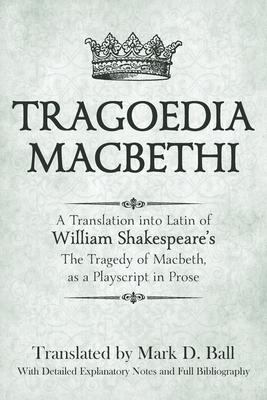This monolingual translation of Shakespeare's Macbeth into Latin, done entirely by a human, is a tool for students, teachers, and enthusiasts to use in the further study of Latin through a story both famous and compelling, and told in a conversational style.
The translation itself corresponds almost line-by-line to the First Folio of 1623, retaining the playscript format but adopting a prose structure. With or without a copy of the play in English, readers will find a Latin-to-English dictionary and grammar reference helpful. The vocabulary and grammar range from simple to complex, and there are detailed notes explaining the translator's reasoning from initial interpretation of English words, passages, and proper names, to their final translation into Latin.
The research that went into this five-year project supported the translator's goal of accuracy, insofar as differences between the two languages allowed. He consulted histories, atlases, biographies, dictionaries, encyclopedias, treatises, and legal records from the centuries before, during, and after the reign of Elizabeth I, along with works by scholars of Shakespeare, Elizabethan England, and ancient Rome, as well as history, culture, religion, language, philosophy, science, and technology. He also turned to ancient Latin authors - Cicero, Vergil, Pliny, Ovid, Lucretius, Tacitus, Curtius, Vitruvius, and others - as well as respected 19th-century translations of Macbeth into other languages.
